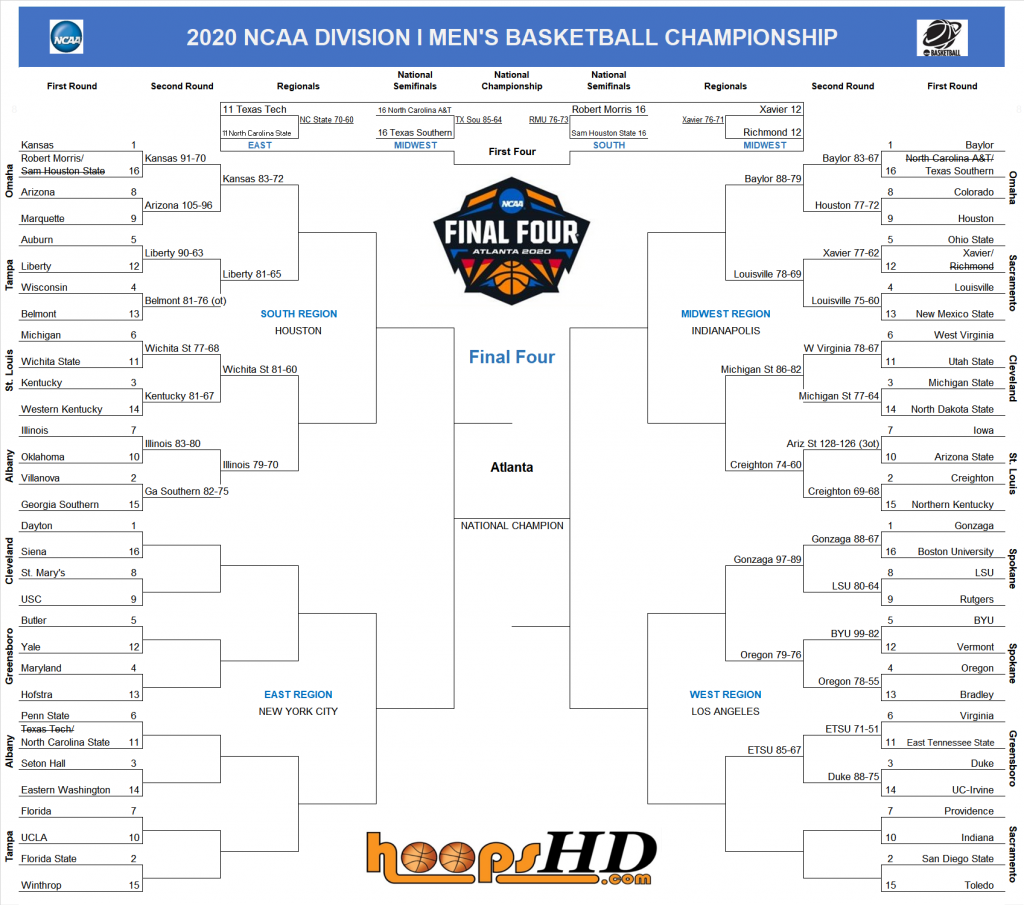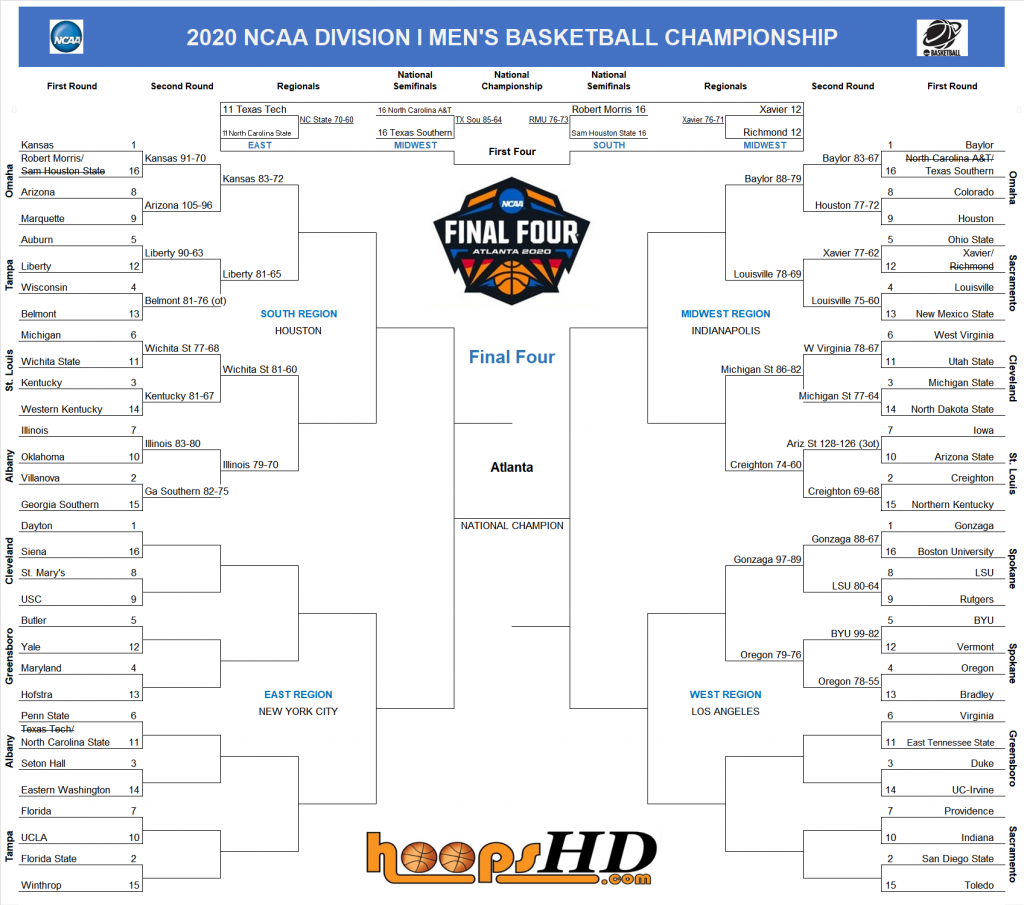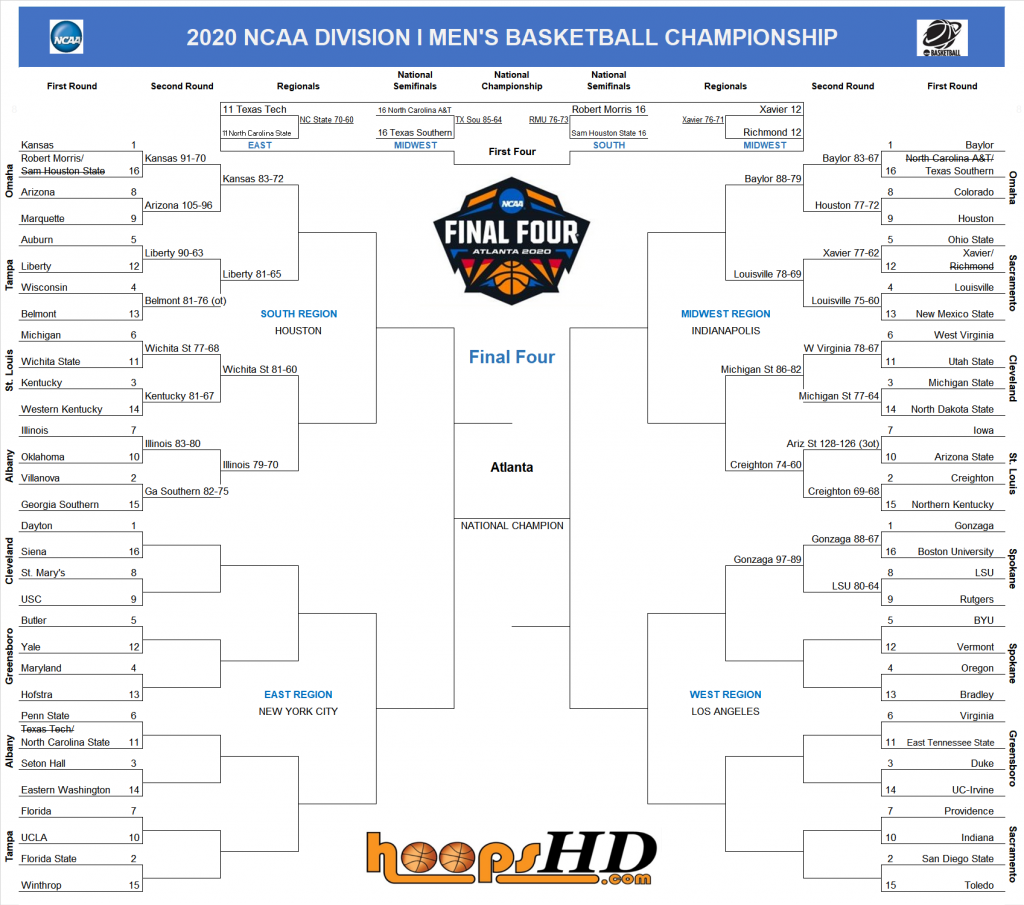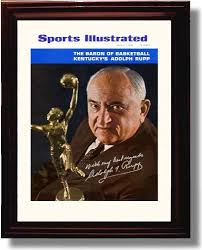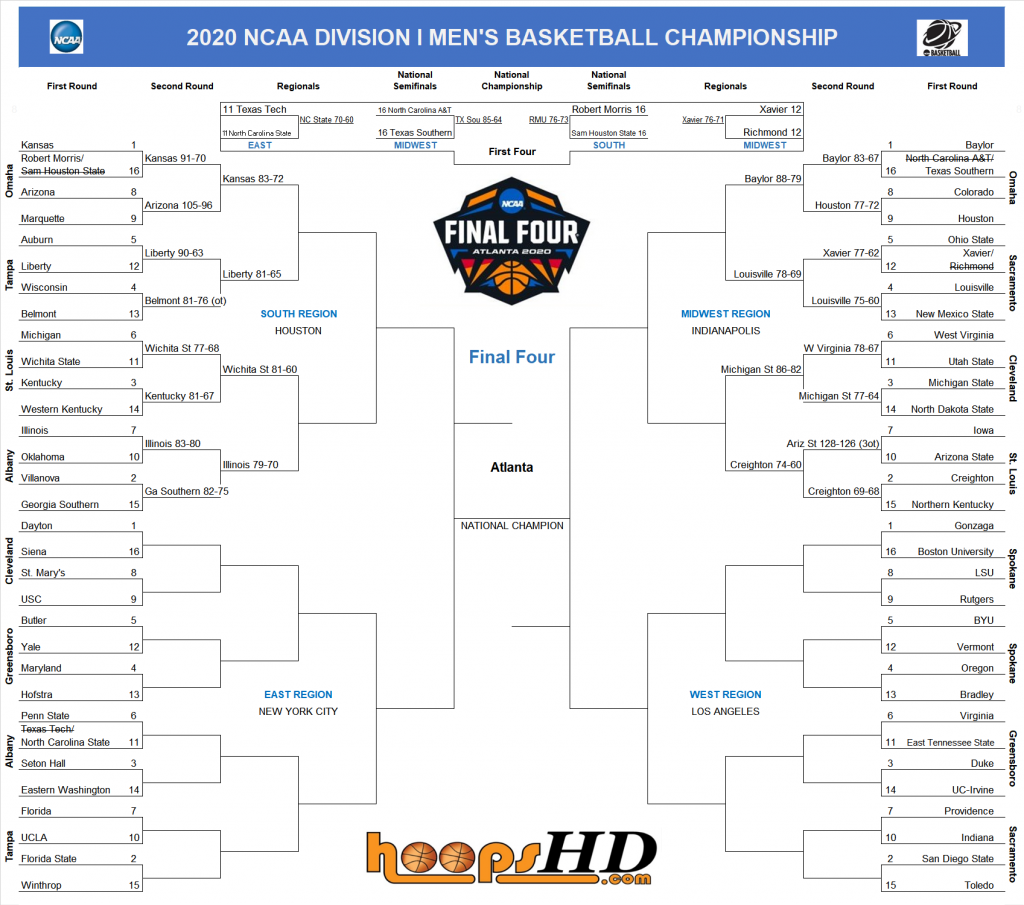HoopsHD continues its simulation of what would have happened in TTTW (The Tournament That Wasn’t). Up next it is time to continue with the First and Second rounds of the NCAA Tournament as we take a look at the third of four pods in the West Region. Although these games were part of the West Region, thee first and second round games were being played in Greensboro, North Carolina and featured two of the top four teams this season in the ACC – Duke and Virginia. Both the Blue Devil and Cavaliers entered the season with national championship aspirations, but to make them a reality they would first need to win this pod and advance to the Sweet 16. Neither team had an easy first round opponent either, as the defending national champion Cavaliers were matched up with a very dangerous East Tennessee State team and the Blue Devils had to get past UC-Irvine. Would it be Duke? Would it be Virginia? Would one of the other two surprise? It is time to find out!
FIRST ROUND – WEST REGION – GREENSBORO, NORTH CAROLINA
(6) Virginia vs (11) East Tennessee State
Eyes were raised when the NCAA Tournament bracket was announced and the chance for an all-ACC second round game between Virginia and Duke was set up. However, as the Selection Committee Chair explained, the two teams had only played once in the regular season, and the bracketing rules allowed just such a matchup to be scheduled. Before that game could ever happen, however, both teams would have to get past tough first-round foes. For the defending national champion Cavaliers, that foe was East Tennessee State, the regular season and tournament champions of the Southern Conference. ETSU had been tough all season, including winning at LSU, and had the computer metrics to back up their seeding in the field being higher than several at-large bid teams.
East Tennessee State, at least on paper, was the scariest of all four 11 seeds in the Big Dance. The Buccaneers showed early in this game that teams were right to be scared of them. After keeping the game close for the first 14 minutes, the Bucs ended the half on a 17-9 run and took a 34-24 lead to the break. Virginia head coach Tony Bennett knew his team had to play one of their best halves of basketball to come back in the second period. Unfortunately for UVA fans, that did not happen. ETSU never let Virginia back in the game and ended up cruising to a 71-51 blowout win, led by 18 points from Jeromy Rodriguez. The Bucs were moving on to the second round and the defending champions were heading back home.
Final Score: (11) East Tennessee State 71, (6) Virginia 51
(3) Duke vs (14) UC-Irvine
Although an all-ACC second round game was not going to happen, the Duke Blue Devils still knew they had their work cut out for them to advance through this pod and book a trip to Los Angeles for the Sweet 16. Duke’s season had been an up-and-down one, with a few baffling losses to the likes of Stephen F. Austin, Clemson and Wake Forest, while at the same time picking up wins over Kansas, Michigan State and Florida State. To get their tournament run started, the Blue Devils had to face the Big West regular season and tournament champions, UC-Irvine. The Anteaters were in their second consecutive NCAA Tournament after rolling through conference play, only losing 3 times to Big West teams in 19 games (including the conference tournament).
Duke came out ready to play in this game, and halfway through the first period the Blue Devils had already established a 14-point lead. The lead just continued to grow through the remainder of the first half and by the break the score was 52-34 Duke. Although the Anteaters played better in the second half, by that time Duke was simply on cruise control. The final score was 88-75, though the game was not even that close. Vernon Carey’s 26 points led the way for the Blue Devils while Tre Jones had a double-double with 12 points and 10 assists.
Final Score: (3) Duke 88, (14) UC-Irvine 75
SECOND ROUND – WEST REGION – GREENSBORO, NORTH CAROLINA
(3) Duke vs (11) East Tennessee State
The Buccaneers of East Tennessee State had blown the defending national champions out of the tournament in the first round. Things would not get any easier for them, however, as the Duke Blue Devils, playing in their home state, were up next in the Round of 32. Duke appeared ready to make a deep Tournament run after having taken care of UC-Irvine fairly easily in their first game. Of course, ETSU had already proven that they were not a typical mid-major team, and Duke needed to show up ready to play in order to win this game.
Duke needed to be ready, but apparently the Blue Devils were not. East Tennessee State struck hard and fast in this game, jumping out to a 24-9 lead and simply dominating the first half to head to the break up by an almost mind-baffling 48-29 score. It was finally time for the entire nation to take serious notice of the team from Johnson City, Tennessee. ETSU never let Duke back into the game and rolled to an 85-67 win, their second straight blowout victory over a team from the mighty ACC. Five different Bucs scored in double figures, led by 14 from Bo Hodges. Virginia was gone. Duke was gone. The Sweet 16 team was set, and it was the 11th seeded Buccaneers booking their tickets for a trip to Los Angeles.
Final Score: (11) East Tennessee State 85, (3) Duke 67

